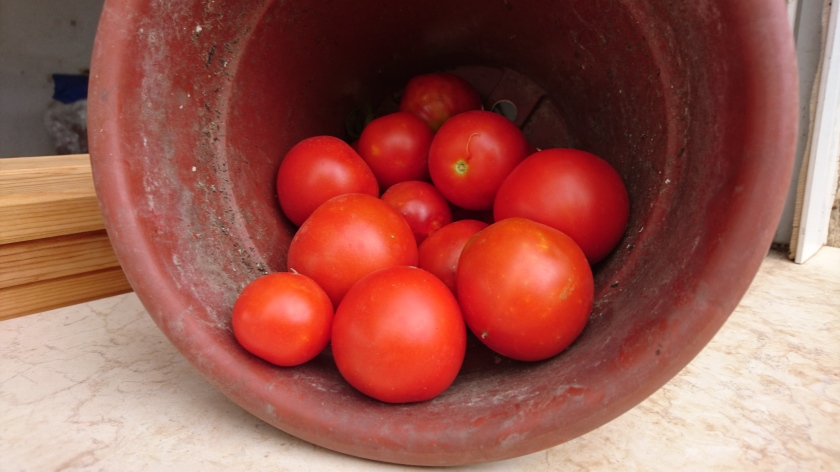
For the past few weeks, butter has been increasingly hard to obtain in major chain stores around here, up until the point when, last week, my husband failed to find butter in any of the grocery stores near us. Our kids, who are butter lovers, grumbled and complained until I made pancakes for breakfast.
While the butter deficit is a comparative blip among the heavily laden grocery store shelves, I still remember times, during the fall of the Berlin Wall and the crumbling of the communist block when I was a child, that grocery stores virtually emptied out within an hour of being open. People weren’t actually starving, but no basic staple was taken for granted.
It is disconcerting to realize how much we are all really at the mercy of import, global food production, government policies – in short, the economy, which can be capricious. We buy what we can find at the local store, at prices we have no way to change.
Honing one’s preparedness skills is a great investment that doesn’t cost much and may really pay off in the long run, whether in a real emergency or just to save money in the face of rising prices. Here are some questions for starters:
1. Can you grow at least a part of your own food? Do you have space for a vegetable garden, a chicken coop, perhaps a couple of goats?
2. Can you identify wild edibles? Do you know of any untended orchards in your area?
3. Do you know how to preserve food by canning and drying? Freezing is good, but you can’t always count on having electricity.
4. Do you know how to make and/or mend clothes? Can you attach a button, sew up a ripped seam, unravel an old unused afghan to knit or crochet warm clothes for your family from the yarn? Do you know how to weave a simple storage basket from material you can find lying around in the nature?
5. Are you up for doing basic repairs? Can you unclog a drain, drive a nail into wall, install a lightbulb?
6. Do you know how to make your own soap and cleaning products, use herbs and natural remedies to treat minor ailments, recycle wax to make candles?
7. Can you devise a simple plan for developing a network of mutual help and reliance among your neighbors, rather than be wholly dependent on what you can buy or obtain from outsiders/the government? Do you have any useful skills you are prepared to barter (I’ll bet you do)?
All of these aren’t just fun hobbies; today’s quirky hobby is tomorrow’s survival skill! I would suggest it’s never too soon (nor too late) to begin practising.

Number 7 seems like the most important one to focus on. You can always learn new skills. But relationships take time to cultivate, networks take time to build.
LikeLiked by 1 person
Quite true.
LikeLike